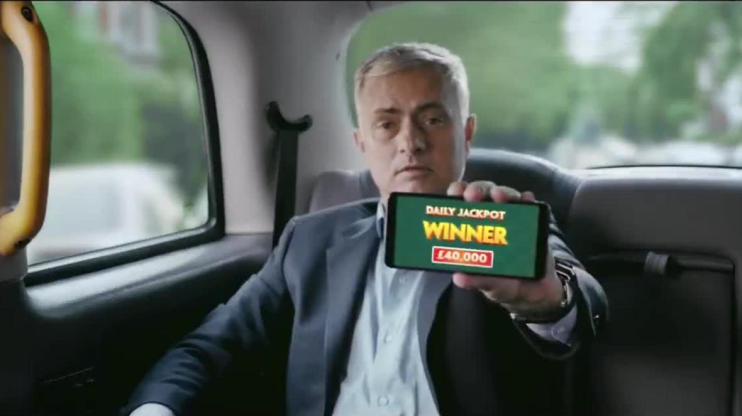Gambling committee calls for ban on celebrity endorsements

Jose Mourinho, Michael Owen and Harry Redknapp could be set to lose lucrative gambling contracts, as the use of celebrity endorsements in betting adverts is expected to be banned under a wide-scale crackdown on problem gambling.
The Committees of Advertising Practice (CAP) has launched a consultation on the new measures, following fresh data showing problem gambling has spiked among younger generations during the pandemic.
CAP said the new proposals would likely ban adverts that use prominent sportspeople, celebrities and reality TV stars, who hold particular influence over young people.
“The consultation proposes a strengthening of our rules and guidance which will help us in our ongoing work to prevent children, young and other vulnerable people from being harmed or exploited by gambling advertising,” said CAP director Shahriar Coupal.
It comes after a report by Gamble Aware and Ipsos Mori published earlier this year found that 42 per cent of people aged between 11 and 24 were “current gamblers”, meaning that they had participated in gambling within the last month.
More than one in ten 11-16-year-olds said they had spent their own money on gambling in the past seven days, while almost three per cent were identified as “at risk” gamblers.
The government is set to launch a full-scale review of current gambling legislation amid growing concerns from both the House of Lords and the House of Commons that it is not fit for purpose in the digital age.
In June, a cross-party group of more than 50 MPs amped up pressure for the government to tighten curbs on the sector, and called for restrictions including a total ban on gambling adverts, independent affordability checks and controls on gambling game design.
A Lords Select Committee report on gambling in July echoed MPs’ findings, and called for tight restrictions on the industry such as a crackdown on loot boxes and the creation of a gambling ombudsman.
The Department for Digital, Culture, Media and Sport (DCMS) last month launched a consultation on the use of loot boxes in video games, which gamers can purchase for the chance of receiving randomised virtual items.
A DCMS Committee report on immersive and addictive technologies last year found that their use by game developers was likely to “facilitate profiting from problem gamblers”.
It comes amid concerns the pandemic has fuelled a spike in gambling activity, with bored teens turning to online and smartphone sites to pass the time during lockdown.
A report by the gambling commission released earlier this year revealed that more than two-thirds of “engaged” gamblers increased their usage during the pandemic, while younger people aged 18-34 were “significantly more likely” to report increases in time or money spent on at least one gambling activity during lockdown.